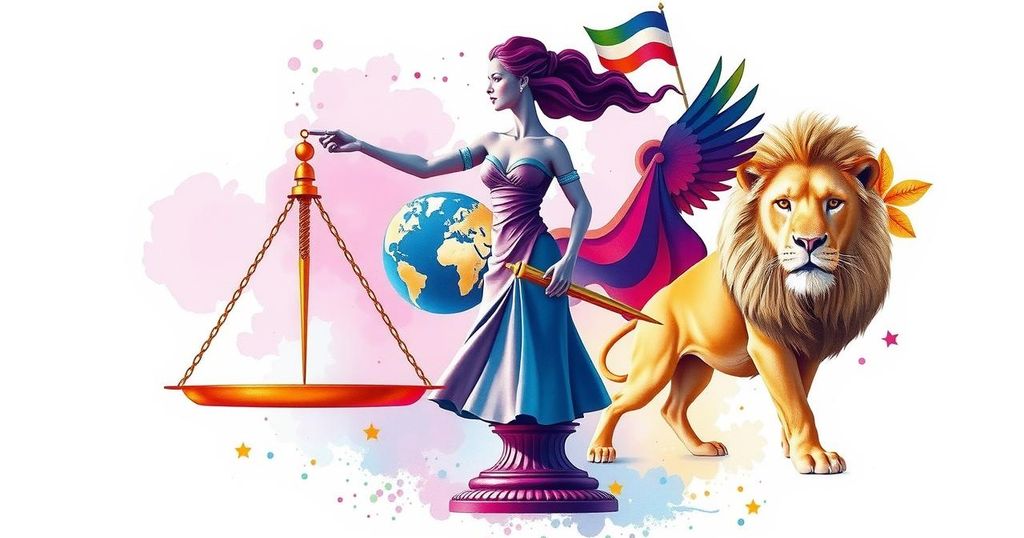The Global Assault on Women in Politics
- Countries with nearly half the world’s population are holding elections this year.
- Autocratic populists are winning elections in major countries like India and Russia.
- Women hold only 27% of the world’s legislative seats today.
- Online violence against women politicians is increasing alarmingly.
- Women leaders are stepping down due to threats and violence.
- Increasing right-wing sentiments are threatening women’s rights worldwide.
Women in Leadership: Facing Violence and Threats The grim reality is that more than 70% of the global population is now under autocratic regimes, according to the latest annual report from the V-Dem Institute, an entity dedicated to tracking democracy around the world. What remains hidden in these statistics is a disturbing parallel: an increasing assault on women leaders and women’s rights at the hands of far-right extremists and elected autocrats. Over the past three decades, women’s legislative representation was on the rise, spurred on by quotas imposed in various nations. Yet, this upward trend has faltered in recent years, as U.S. Ambassador Geeta Rao Gupta highlights, describing the stagnation as “scary.” Presently, women account for only 27% of the world’s legislative seats, a worrying decline especially given that the number of female heads of state also dwindled sharply in the past year.
The Global Struggle Against Autocracy and the Decline of Women’s Representation This year, a staggering number of countries, nearly half the world’s population, are heading to the polls for national elections. However, rather than a cause for celebration in democratic governance, these elections unveil a concerning trend: many places are witnessing a rise in autocratic leaders or the re-election of populist figures. Major countries like India, Indonesia, and Russia have all seen victories that lean towards authoritarianism. In fact, this follows last year’s populist triumphs in countries like Argentina and Turkey, painting a bleak picture for democratic societies.
A Call for Action Against Gender-Based Violence In light of this rising tide of online hatred, the urgency for government leaders and political parties to step up is palpable. It’s imperative they tackle the violence directed at women head-on, support laws that require tech companies to act against online hate, and dismantle the misconceptions that women can’t lead effectively. These actions must go hand-in-hand with a recommitment to civil rights and a more inclusive democracy for all. The steady decline of women holding office is just one indicator of a democracy’s overall health. Since reaching a peak of 38 female heads of state in 2023, the number has now dropped to 27. High-profile female leaders in Finland, the Netherlands, and elsewhere have resigned due to the overwhelming pressures of office, leaving a record number of departures in their wake. This year alone, 14 U.S. Congresswomen chose not to seek re-election, a record that paints a stark picture of women withdrawing from politics due to fear and threats.
Confronting Online Violence and Misogyny in Politics The reasons for this decline in women’s representation cannot be understated, particularly concerning the threats and violence faced by female politicians, both online and off. Research from the Inter-Parliamentary Union finds that nearly half of women legislators have received violent threats, with these women being disproportionately targeted due to their gender. Since 2019, the Armed Conflict Location and Event Data project has documented an uptick in physical violence against women in politics globally. Take, for instance, the distressing case of former U.S. House Speaker Nancy Pelosi’s husband, whose home was invaded as part of a targeted attack aimed at her. Then there’s Michigan Governor Gretchen Whitmer, who fell victim to an attempted kidnapping in 2020. These threats are frequently nurtured in the dark recesses of online platforms, only to infiltrate the broader public sphere as extremist ideas gain traction among right-wing politicians and media figures across various countries.
A Broader Context of Political Misogyny But it’s not just liberal politicians facing the fire. Autocratic women also exist and can be complicit in oppressive governance. Bangladesh’s Prime Minister Sheikh Hasina, for instance, won a fourth consecutive term in January amid concerns over her authoritarian policies. Similarly, women aren’t just victims; they lead some far-right factions in Europe gaining traction with anti-immigrant ideologies. In France, Marine Le Pen’s National Rally party capitalized on growing discontent, even as Italy’s Giorgia Meloni sports a government marked by a history of fascism. Such paradox illustrates that while women can be leaders, not all lend their influence for progressive causes, highlighting a complexity in understanding their role in global politics today.
The Spotlight on Women Leaders Amidst Growing Dangers The threats against women leaders have become an all too familiar narrative. In New Zealand, former Prime Minister Jacinda Ardern faced disturbingly high threats during her tenure. Assassination and rape were among the vile threats hurled at her, leading to her decision to step down, stating she simply didn’t have “enough left in the tank.” Similarly, Dutch Deputy Prime Minister Sigrid Kaag resigned after her daughters urged her to do so due to fears for her safety. The gender-based abuse is markedly worse for women in senior political positions, with for example, former Finnish Prime Minister Sanna Marin resigning after a video of her dancing went viral, while Slovakia’s president, Zuzana Caputova, declined to pursue another term despite her popularity.
The Misguided Future of Gender Equality The move towards extremist and sexist political norms is stark. Survey results show that younger men today are less supportive of feminism, illustrating a cultural regression. At the same time, structural barriers persist – childcare, wage gaps, and access to leadership opportunities remain significant hurdles for women in political spaces. This bias, unfortunately, is deeply rooted and continues to fuel the narrative that men are better suited for leadership roles. However, this notion is continually challenged by the courageous leadership exhibited by women in difficult times. Women leaders are showing remarkable resilience in defending human rights and confronting external threats, proving their capability in political leadership.
The Role of Technology in Gender-Based Political Violence Meanwhile, the surge in right-wing political parties threatens both women and democracy. Politicians often hide regressive views behind the facade of ‘traditional family values’. In Hungary, Viktor Orban has enacted laws that systematically disregard gender rights while pushing restrictive anti-immigration reforms. The continuous fight against feminist ideologies thrives on these regressive policies, exemplified by countries like Turkey and South Korea, where progressive gains are being rolled back. With technology playing an increasingly prevalent role in enabling misogyny, online platforms propagate violence against women at alarming rates – 80% of women parliamentarians endure gender-related attacks, with many threatened with death or sexual violence. Just imagine, a world where a single woman senator receives upwards of 2,000 hate tweets an hour.
Looking Ahead: The Path for Women in Politics Despite the challenges, there is hope. The report notes that 18 nations, largely small democracies led by women, are successfully pushing forward revitalization efforts. These nations are fostering good governance and diving into societal challenges by implementing policies that prioritize the rights of all citizens. It’s entirely possible for men not to be sidelined in this dialogue; rather, promoting equal rights can benefit everyone. The onus is on these democratic leaders to shore up political rights and take decisive action that could set the framework for future progress. The resilience and commitment demonstrated by women leaders around the world will hopefully dismantle long-held biases about female leadership effectiveness over time.
In summary, the global landscape for women in politics is facing considerable challenges, marked by rising autocracy and increasing violence against women leaders. The data presents a bleak picture: representation of women is declining just as threats escalate. Even though female leaders are often targeted, they also have shown incredible resilience and courage in their governance. Going forward, it’s crucial for all stakeholders, including governments and tech platforms, to work towards combating the misogyny and violence that actively undermines women’s roles in politics while championing gender equality. In doing so, there lies a hope for a more equitable representation that reflects the diversity of our societies. Without decisive action, the valuable gains made over past decades could be at risk of erosion, making the task ever more urgent to pursue political equity for all women.




